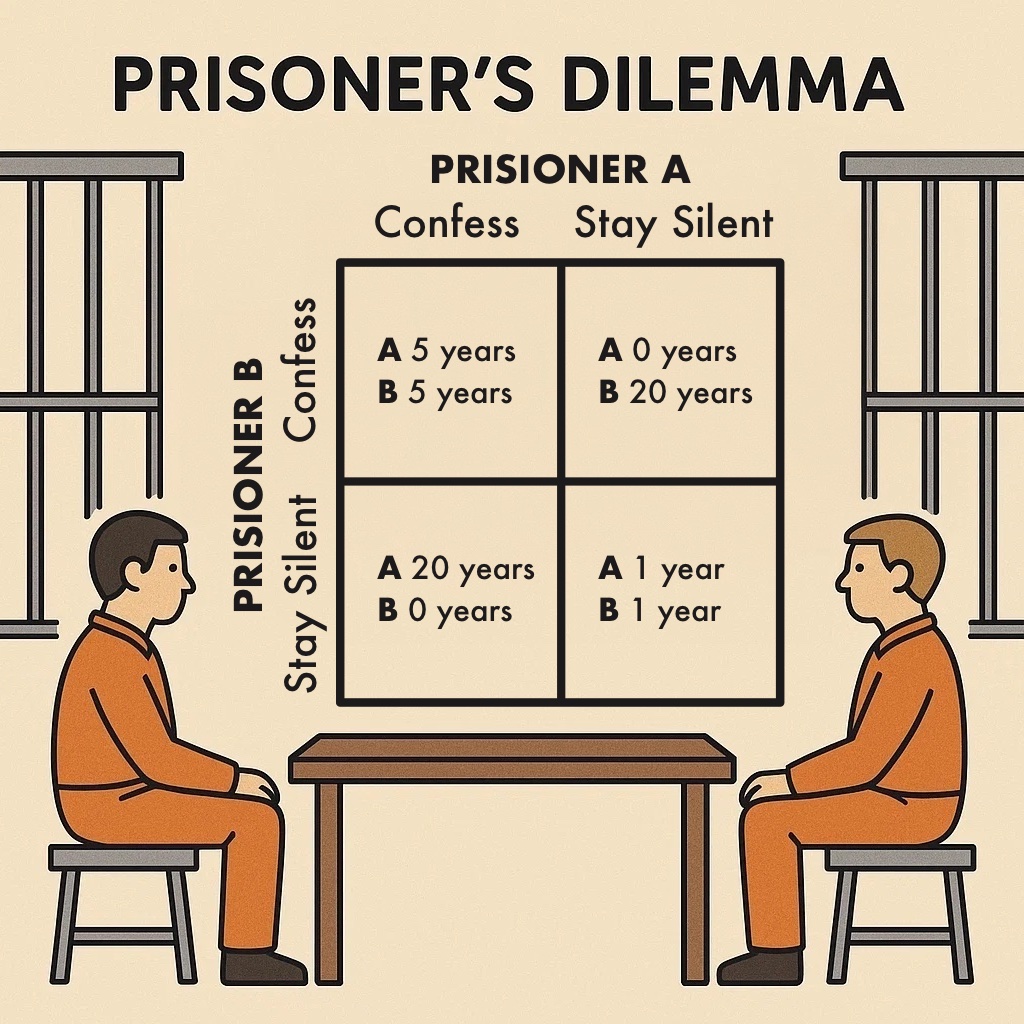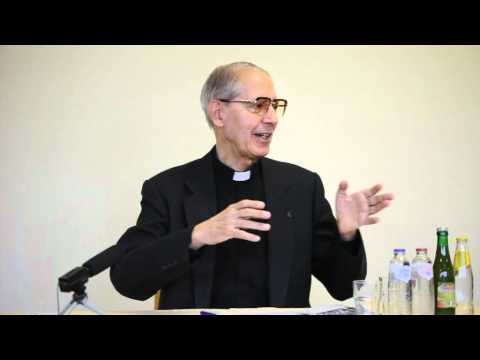You’re driving to work when someone cuts you off, nearly causing an accident. For the next five miles, you fantasise about pulling alongside them at the next red light, rolling down your window, and giving them a piece of your mind. Maybe you even imagine following them home, confronting them in their driveway. The fantasy feels good—righteous, even. But somewhere deep down, you know this isn’t who you want to be.
Our brain is trying to decide between two standards: using its executive function to make a sensical choice or to give into its reward centre and follow the path of immediate revenge. Neuroscience research shows that spiritual practices strengthen the prefrontal cortex, the brain region responsible for cognitive control and emotional regulation, therefore reducing the tendency toward revenge.
Revenge promises justice and relief but delivers spiritual death. We might understand revenge as the false self’s ultimate protection mechanism. It’s the standard of the evil spirit which promises self-preservation through violence. Yet religious individuals show 12% less physical aggression than non-religious populations. Consider the standard of Jesus who said of executioners, “Father, forgive them.” That is the true self’s response to injustice. The true self takes a merciful approach, not a vengeful one.
The Ego’s Addiction
 Let’s consider our tendency to choose fear-based self-protection over vulnerable trust. That is the ego at play. In the classic Prisoner’s Dilemma experiment two prisoners are arrested and held separately, unable to communicate. Each can either cooperate (stay silent) or defect (betray the other). If both cooperate, they both get light sentences. If both defect, they both get harsh sentences. But if one cooperates while the other defects, the defector goes free while the cooperator gets the worst sentence. The “rational” choice seems to be betrayal—but when both prisoners think this way, they both end up worse off than if they had trusted each other. It’s a cycle of revenge. Each side’s “rational” retaliation makes everyone worse off. Our grievances actually activate reward circuits, as drugs do. It can create a cycle of addiction to revenge where temporary satisfaction is followed by deeper pain. We’ve likely all experienced the “reward” of revenge at some point in our lives.
Let’s consider our tendency to choose fear-based self-protection over vulnerable trust. That is the ego at play. In the classic Prisoner’s Dilemma experiment two prisoners are arrested and held separately, unable to communicate. Each can either cooperate (stay silent) or defect (betray the other). If both cooperate, they both get light sentences. If both defect, they both get harsh sentences. But if one cooperates while the other defects, the defector goes free while the cooperator gets the worst sentence. The “rational” choice seems to be betrayal—but when both prisoners think this way, they both end up worse off than if they had trusted each other. It’s a cycle of revenge. Each side’s “rational” retaliation makes everyone worse off. Our grievances actually activate reward circuits, as drugs do. It can create a cycle of addiction to revenge where temporary satisfaction is followed by deeper pain. We’ve likely all experienced the “reward” of revenge at some point in our lives.
This can cascade into collective revenge, where false narratives can fuel violence. We saw this in the “Stop the Steal” movement where manufactured grievance led to the violence on January 6. Countries and political leaders can get trapped in the protection of the false self, weaponising false narratives. What might it look like for a nation to choose its true self over ego-driven revenge?
 Spirituality as the Antidote
Spirituality as the Antidote
Thankfully, research demonstrates that having a spiritual framework can provide meaning-making that dissolves victimisation narratives. Meditation practices reduce empathetic bias toward in-group members, expanding moral concern beyond tribal boundaries. Faith-based forgiveness interventions show twice the effectiveness of secular approaches, suggesting that spiritual frameworks provide unique resources for healing that purely psychological methods cannot replicate. A study showed that Christians who prayed for their offenders experienced significantly greater increases in empathy, religious commitment, and forgiveness compared to control groups.
Prayer and meditation help expand theory of mind, which means we grow in our awareness that others may have different beliefs, perspectives, and emotions. It increases our capacity for empathy and emotional regulation. In spiritual terms, it allows us to hold both justice and mercy, as Jesus did.
And neuroscience confirms forgiveness shuts down pain centres and revenge cravings; it activates brain networks associated with relief and positive emotional states. How amazing is that? What seems like weakness (forgiveness) delivers true strength (freedom).
So how can we move in this “true self” direction?
Well, faith practices like the Examen or even a loving-kindness meditation, literally rewire the brain for mercy over retaliation. Regular prayer practice reduces cortisol reactivity to stress and lowers inflammatory responses that fuel aggression. The Ignatian practice of imaginative prayer—placing ourselves in Gospel scenes where Jesus responds to injustice with mercy rather than retaliation—creates new neural pathways for compassion. Even brief mindfulness interventions significantly reduce revenge-seeking behaviour while increasing our capacity for forgiveness. Community practices like confession, reconciliation rituals, and shared discernment help interrupt collective revenge narratives before they escalate.
Take a moment to examine your own relationship with revenge and forgiveness:
- What grievances am I currently holding? How do they affect my prayer and daily peace?
- When I imagine forgiving someone who has hurt me, what do I notice in my body and spirit? Do I feel resistance, relief, or something else?
- How might the evil spirit be using my wounded pride to drive me toward retaliation in my relationships, politics, or worldview?
- What would it look like to choose my true self (aligned with God) over my false self (driven by ego protection) in my current conflicts?
The spiritual life offers us an alternative to the cycles of retaliation that seem to dominate our world. Every moment we choose forgiveness over revenge, we’re choosing Christ’s standard over the enemy’s. We’re choosing our true identity in God over the false self’s need to win at all costs. This isn’t about becoming doormats or ignoring injustice—it’s about finding the freedom that comes when we’re no longer enslaved to others’ actions or our own wounded pride.
The neuroscience is clear: forgiveness doesn’t just make us better people—it makes us healthier, freer, and more fully human. And the spiritual wisdom of centuries confirms what the brain scans now show: mercy transforms not just the forgiven, but the forgiver. In a world addicted to revenge, choosing forgiveness isn’t just an act of faith—it’s an act of revolution.
Listen to the podcast version of this post…
Sources
Neuroscience and Brain Research:
- Prayer/meditation strengthening prefrontal cortex: https://www.npr.org/2009/05/20/104310443/prayer-may-reshape-your-brain-and-your-reality
- Forgiveness activating brain networks: https://www.frontiersin.org/articles/10.3389/fnhum.2013.00839/full
- Forgiveness shutting down pain/revenge centers: https://www.ncbi.nlm.nih.gov/pmc/articles/PMC3856773/
Religious Populations and Aggression:
- 12% less physical aggression in religious individuals: https://pmc.ncbi.nlm.nih.gov/articles/PMC10154014/
- Meta-analysis of religiosity and interpersonal violence: https://pubmed.ncbi.nlm.nih.gov/36331229/
Faith-Based Interventions:
- Christians praying for offenders study: Research by Vasiliauskas and McMinn
- Faith-based interventions twice as effective: https://www.researchgate.net/publication/319523815_Intervention_Studies_on_Forgiveness_A_Meta-Analysis
- REACH Forgiveness program: http://www.evworthington-forgiveness.com/reach-forgiveness
Meditation and Compassion:
- Loving-kindness meditation effects: https://www.psychologytoday.com/us/blog/feeling-it/201409/18-science-backed-reasons-try-loving-kindness-meditation
- Mindfulness and forgiveness: https://pubmed.ncbi.nlm.nih.gov/30652883/
Stress and Biological Responses:
- Religious participation and cortisol: https://www.ncbi.nlm.nih.gov/pmc/articles/PMC5118083/
General Forgiveness Research:
- Forgiveness intervention meta-analysis: https://pubmed.ncbi.nlm.nih.gov/24364794/


 Spirituality as the Antidote
Spirituality as the Antidote






Thank you for this post. It is so timely. “What might it look like for a nation to choose its true self over ego-driven revenge?” Hm… So much to ponder on so many levels. 🩷
Thank you, Andy. Trump should listen to you!!! Bob Lawton, S.J.